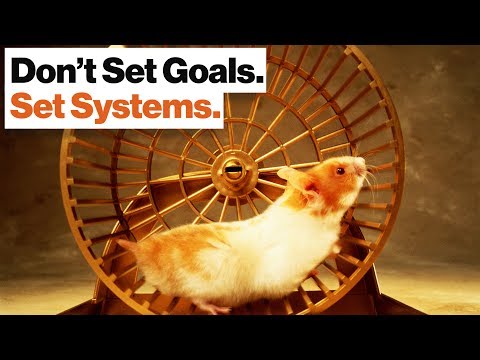Creative Imagination
Published on 30 December 2022 in Creativity
Creative imagination is more than just active imagination. To be able to actively imagine things, to see and hear things in one's mind, is an important ability. It doesn't have to involve much creativity, though, does it? Daydreaming, for example, is a process of imagination. It can consist of an elaborate fantasy world, but one full of all the things that many people think about.
Creative imagination, then, has to include the ability not just to imagine things, but to imagine original things. It is seeing things that others don't see, and coming up with new ideas. So how do you cultivate this?
<b>Creative Imagination 101</b>
First, exercise your basic imagination. It can be as simple as thinking in pictures more, or listening to music in your mind. Play little "movies" in your mind, until you can watch them on command. This is a simple process, but for those of us that can't easily do it naturally, it can take a lot of practice. Fortunately, it is not an unpleasant activity.
The second part of developing your creative imagination is to get more creative in your thinking and imagining. Start by paying attention to your creativity. Our subconscious minds give us more of what we pay attention to. Ignore creative aspects of your life, and you're telling your subconscious they are unimportant. On the other hand, if you note when you're creative, your subconscious mind will start feeding you more creative ideas.
Different surroundings can also encourage your creativity. Want more creativity in your love life? Hike up a mountain with your partner. Do you write? Try sitting on a roof to write. Want new ideas for your business? Take a notebook to the park and sit by the duck pond. A change of environment can get your thinking out of it's ruts.
You can play games that exercise your creative imagination. One such game uses a technique called "concept combination." Alone or with other players, you combine random concepts or things in new ways, to see who has the best idea. A thermometer and a billboard, for example, could generate an idea for a sign that checks the weather and adjusts the message accordingly ("Come in out of the heat for a cold beverage," or "Come in out of the rain and warm up with our gourmet coffee.").
<b>Don't Wait For Creative Imagination</b>
Creative inspiration certainly can strike at any time, but it strikes more often when there is work instead of waiting. So if you want to come up with creative inventions, start mentally redesigning everything you see. Imagine a better bicycle, a faster mail service, or a better chair. Continue this for three weeks, and it will become a habit.
Of course, creative imagination goes beyond solving specific problems or inventing things. Truly creative minds are always coming up with the questions too, not just the solutions. If you want to be more creative all the time, focus on three things:
1. Changing your perspective. A child might think that working just to not work (to retire) is silly. Thinking from that perspective might give you ideas for how to make money doing things you enjoy. Seeing the world as a bear sees it might give a painter imaginative new ideas. Looking at things from a customer's perspective is a sure way to find creative improvements for a business. See everything from several perspectives.
2. Challenging your assumptions. What if restaurants didn't have employees? Visitors pay a machine as they enter, feed themselves at a buffet, and everything is as automated as possible, so one owner-operator could run a large restaurant alone. Challenge all your assumptions for practice. Do you really have to pay rent? Do swimming pools need water? Can exercise be a bad thing?
3. Let your ideas run wild. Does a flying bed seem silly? It could lead to the concept of a helium mattress. When you get off it in the morning, it floats out of the way, up to the ceiling. Perfect for small apartments. Don't stifle your creativity. Relax, and let ideas come. You can always discard them later.
For these techniques to be a habitual part of your thinking, use them regularly. Since it takes several weeks to develop a habit, remind yourself to use them each day. Jot a few of your favorite techniques on a card and carry it with you. Look it over throughout the day and apply the techniques to anything. Soon, you'll have a more creative imagination.
Creative imagination, then, has to include the ability not just to imagine things, but to imagine original things. It is seeing things that others don't see, and coming up with new ideas. So how do you cultivate this?
<b>Creative Imagination 101</b>
First, exercise your basic imagination. It can be as simple as thinking in pictures more, or listening to music in your mind. Play little "movies" in your mind, until you can watch them on command. This is a simple process, but for those of us that can't easily do it naturally, it can take a lot of practice. Fortunately, it is not an unpleasant activity.
The second part of developing your creative imagination is to get more creative in your thinking and imagining. Start by paying attention to your creativity. Our subconscious minds give us more of what we pay attention to. Ignore creative aspects of your life, and you're telling your subconscious they are unimportant. On the other hand, if you note when you're creative, your subconscious mind will start feeding you more creative ideas.
Different surroundings can also encourage your creativity. Want more creativity in your love life? Hike up a mountain with your partner. Do you write? Try sitting on a roof to write. Want new ideas for your business? Take a notebook to the park and sit by the duck pond. A change of environment can get your thinking out of it's ruts.
You can play games that exercise your creative imagination. One such game uses a technique called "concept combination." Alone or with other players, you combine random concepts or things in new ways, to see who has the best idea. A thermometer and a billboard, for example, could generate an idea for a sign that checks the weather and adjusts the message accordingly ("Come in out of the heat for a cold beverage," or "Come in out of the rain and warm up with our gourmet coffee.").
<b>Don't Wait For Creative Imagination</b>
Creative inspiration certainly can strike at any time, but it strikes more often when there is work instead of waiting. So if you want to come up with creative inventions, start mentally redesigning everything you see. Imagine a better bicycle, a faster mail service, or a better chair. Continue this for three weeks, and it will become a habit.
Of course, creative imagination goes beyond solving specific problems or inventing things. Truly creative minds are always coming up with the questions too, not just the solutions. If you want to be more creative all the time, focus on three things:
1. Changing your perspective. A child might think that working just to not work (to retire) is silly. Thinking from that perspective might give you ideas for how to make money doing things you enjoy. Seeing the world as a bear sees it might give a painter imaginative new ideas. Looking at things from a customer's perspective is a sure way to find creative improvements for a business. See everything from several perspectives.
2. Challenging your assumptions. What if restaurants didn't have employees? Visitors pay a machine as they enter, feed themselves at a buffet, and everything is as automated as possible, so one owner-operator could run a large restaurant alone. Challenge all your assumptions for practice. Do you really have to pay rent? Do swimming pools need water? Can exercise be a bad thing?
3. Let your ideas run wild. Does a flying bed seem silly? It could lead to the concept of a helium mattress. When you get off it in the morning, it floats out of the way, up to the ceiling. Perfect for small apartments. Don't stifle your creativity. Relax, and let ideas come. You can always discard them later.
For these techniques to be a habitual part of your thinking, use them regularly. Since it takes several weeks to develop a habit, remind yourself to use them each day. Jot a few of your favorite techniques on a card and carry it with you. Look it over throughout the day and apply the techniques to anything. Soon, you'll have a more creative imagination.



